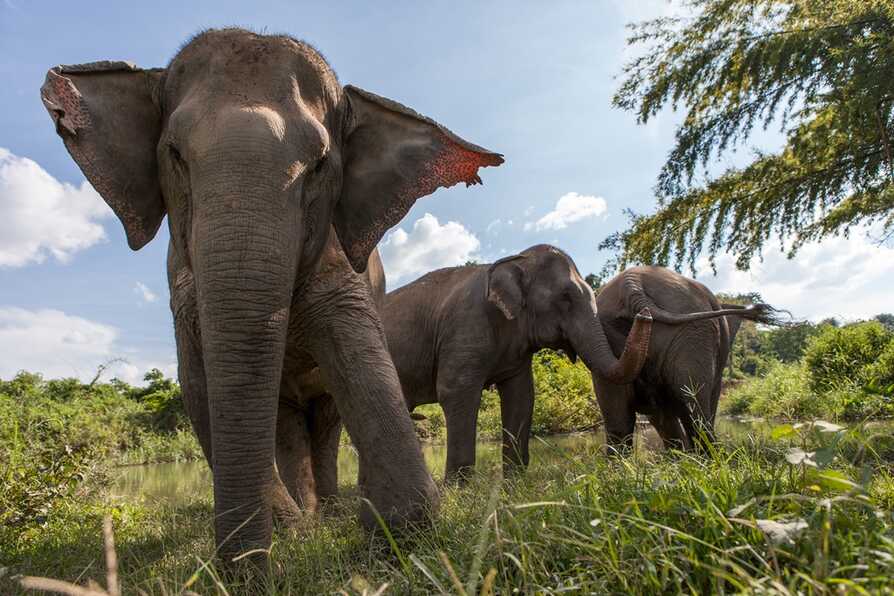
Elephant rides and elephant shows are stressful for the animals and harm their well-being – but many tourists continue to visit these venues and book such excursions. TUI Care Foundation and World Animal Protection have now joined forces to protect about 650 Asian elephants in captivity by 2020. With this partnership, the development of welfare-friendly example venues will be supported, so that tourists can experience wildlife responsibly. Through leading by example, the two organisations hope to establish a benchmark for best practices in the region and enable the expansion of these models to other venues. While focused mainly on Thailand, this initiative is aimed at five other key countries covering the largest part of the population of captive Asian elephants: Laos, Cambodia, Nepal, India and Sri Lanka.
Thomas Ellerbeck, Chairman of the Board of Trustees of the TUI Care Foundation, explained: “In the tourism industry, we have seen positive change towards the protection of elephants as well as a growing interest for further information from tourists. This reflects the fact that protecting elephants and their well-being is actually safeguarding a fundamental part of the natural heritage that makes these countries such outstanding destinations. Tourism can be a driving force for positive change, and we are proud to work with World Animal Protection to support an elephant friendly future in South Asia.”
Working hand in hand with animal experts and the best local venues, a sustainable “business model” will be developed to promote demand from the tourism industry for truly elephant-friendly venues. As part of the project, resources will be provided to help existing elephant venues to transition to high animal welfare standards. In addition, TUI Care Foundation and World Animal Protection are working closely with the travel industry and policymakers to define minimum welfare requirements for elephant venues and give recognition to those genuinely offering higher welfare for elephants. Currently, a new accreditation system is being trialed to enhance demand-based rewards of welfare improvements. Moreover, guidelines will be created for elephant venues to foster best practices and, eventually, putting a stop to demand for and supply of cruel elephant entertainment.
Raising awareness effectively is another key goal of this partnership in its pursuit of establishing a best-practice benchmark in the region. Many tourism companies have already acknowledged the importance of the matter and are working towards more sustainable and responsible offerings in tourism. By 2016, more than 100 travel agencies had pledged not to include elephant rides and shows in their itineraries. TUI in the Netherlands was the first travel operator in the world to openly stop offering elephant rides and shows.
Steve McIvor, CEO at World Animal Protection explains: “Alternative travel options are available and public demand for elephant rides is slowly changing, but there is still work to be done. Many tourists see elephants as the highlight of their holiday. However, this wish often stems from a lack of awareness of the abuse involved. As soon as they become aware of the suffering caused by elephant rides and shows, their enthusiasm quickly wanes.”
Today, there are around 4,000 elephants in captivity in Thailand, and an additional 2,000 to 3,000 elephants live in their natural habitat. The Asian elephant population in the wild has experienced a rapid decline over recent decades. Asian elephants are therefore classified as endangered on the IUCN (International Union for Conservation of Nature) list.

